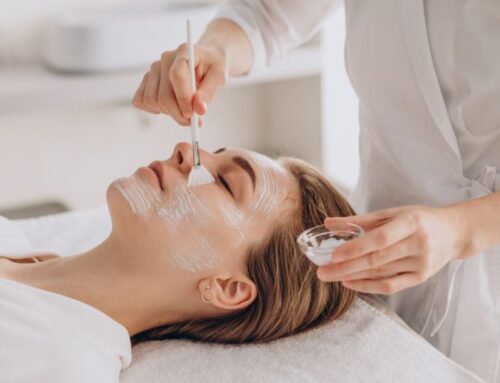Vitamin C is a renowned glow giver that leaves the skin with an even texture & tone and youthful vitality. Its purest form is known as L-ascorbic acid. This science-backed tried-and-true ingredient has the following skin benefits.

Vitamin C is a potent antioxidant protecting the skin from oxidative stress by fighting free radicals. It nullifies the oxidative stress that degrades sensitive molecules such as proteins (collagen.), fats, and other tissues causing structural damage and premature skin aging.
Vitamin C has skin brightening and anti-pigmentation effect due to tyrosinase inhibition and helps fade dark spots and other discoloration while restoring the glow.
Vitamin C is antiaging. It stimulates and promotes collagen production while diminishing the appearance of fine lines and wrinkles.
In addition, Vitamin C contains anti-inflammatory activity and helps reduce the redness and swelling that comes with acne. Therefore, topical Vitamin C helps improve the look of acne wounds and scars.
But not all Vitamin C formulas are equally created. What should you look for on the label?
Vitamin C or L-ascorbic acid has many derivatives. First, turn and learn about the form and concentration of vitamin C. For example, it is recommended to use 10-20% of L-ascorbic acid for effectiveness. Moreover, Vitamin C works best when combined with other antioxidants. Look for Vitamin E and Ferulic Acid in your serum.
If you wonder when to use a vitamin C serum, the answer is both morning and night. As per an article published by the Indian Dermatology Online Journal, adequate photoprotection can be achieved by applying a vitamin C serum every eight hours regularly. Moreover, if you must use retinol and L-ascorbic acid simultaneously (preferably nighttime), separate them for 30 minutes. Apply your vitamin C first since it has a lower pH.
However, pairing vitamin C with benzoyl peroxide is not advised as they can counteract each other’s effects: The benzoyl peroxide can oxidize vitamin C.
L-Ascorbic acid does have one flaw. It is the most unstable form that can oxidize very easily. If you need to protect the freshness, do not open the bottle regularly and close the cap tightly as vitamin C tends to oxidize and change color after being exposed to air. Keep in mind that heat and light exposure also accelerate the oxidation reaction. So, store it in a cool and dark place.
Vitamin C is generally safe for most people. As with any skincare product, some people may experience side effects like a tingling sensation upon application. It might also cause itching, redness, and skin irritation.



